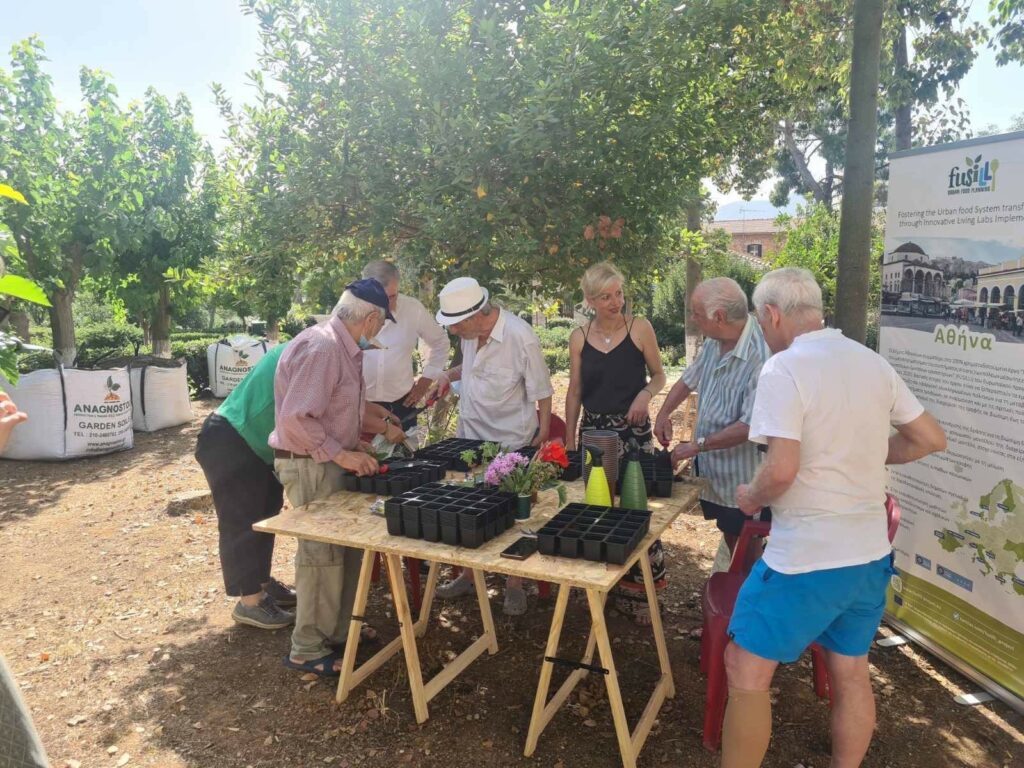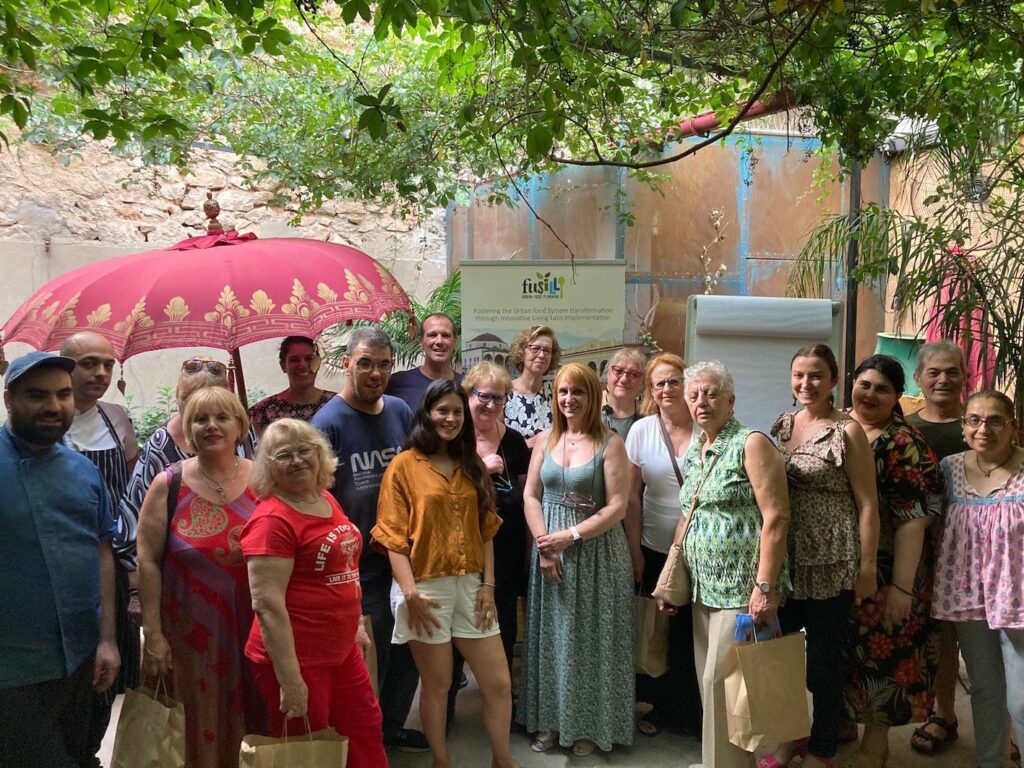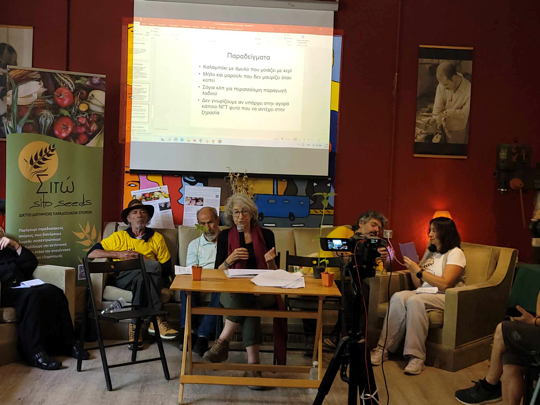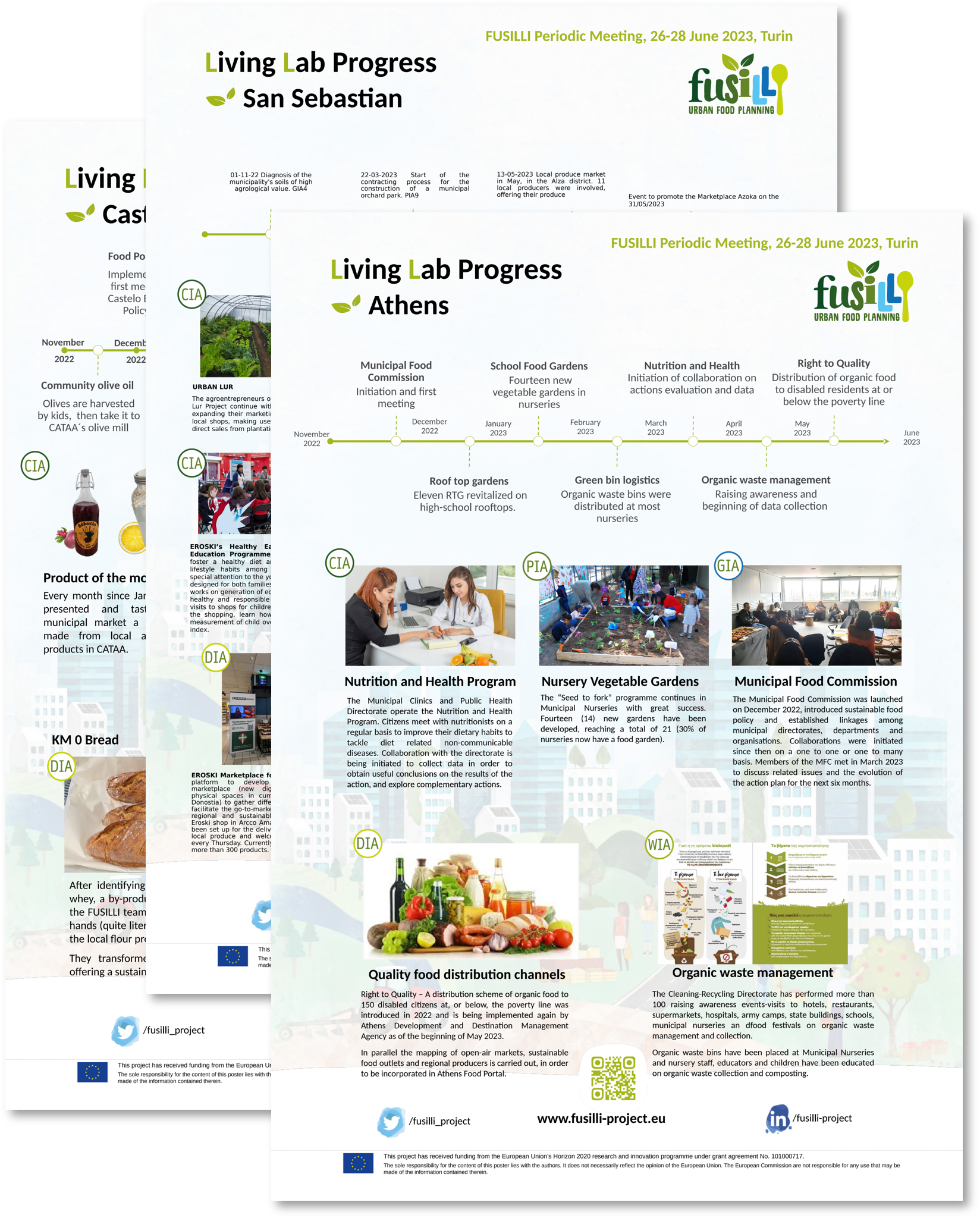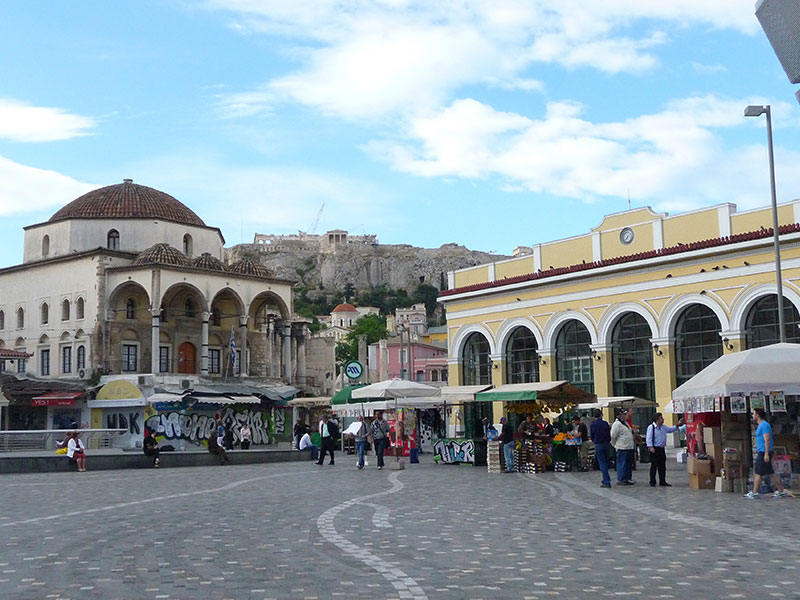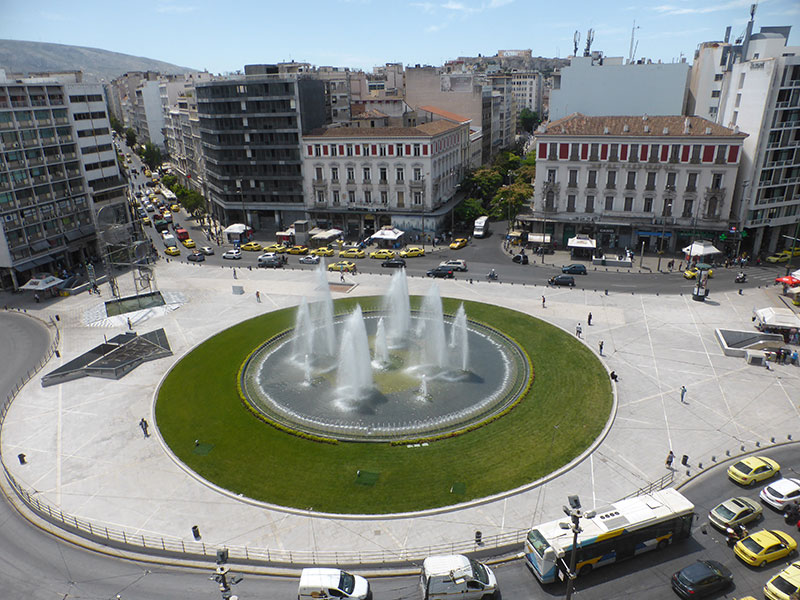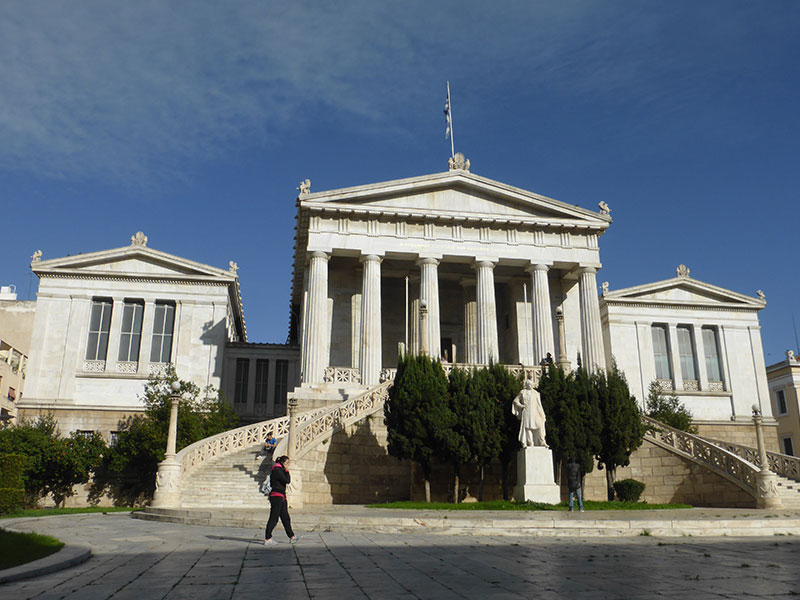Athens’ Urban Food Action Plan
The FUSILLI Project has developed 70 Innovation Actions to transform the food system in the cities. These actions based on the different stages in the food system: governance, production, distribution, consumption, and waste, are implement through Living Lab activities during the project period. The Urban Food Action Plan gives an overview of the city as a Living Lab, the challenges they face and the plan of action that they pursuit. They are presented in complete and in summary form which are available both in English and their local language.
Athens Living Lab Outcomes and Tools
The FUSILLI Athens Living Lab has developed various outcomes and tools over the 4 years of project life time between 2021-2024. These city specific Living Lab outcomes and tools can be found on this page
Athens' Roadmap
See their complete LL Roadmap
Athens' Evaluation of Innovative Actions
See the evaluation of their implemented actions defined in the action plan
Athens' Food Action Plan
Read their complete Urban Food Action Plan
Summary - Urban Food Action Plan - English
Read Athens' Urban Food Action Plan in English
Summary - Urban Food Action Plan - Greek
Read Athens' Urban Food Action Plan in the local language
Updates from the Living Lab
Athens
Athens
The Municipality of Athens has to manage a city with large historical and cultural heritage, affected severely by austerity. In 2017, the Municipality of Athens adopted a plan for mitigating carbon dioxide emissions, setting a target of reducing emissions by 40% by 2030, a plan for adapting to climate change and a resilience plan. Up to date, Athens has managed to reduce its GHG emissions by 20.5%, in relation to its base year (2014). Currently, the city is under revision of its climate action plan, so as to achieve carbon neutrality by 2050. The transformation of its food system to a more sustainable one is part of the action plan.
Main objectives and planned implementations
The main objective is to transform the food system into a more sustainable and more circular one, in line with the city’s aim to become a carbon neutral city by 2050. The planned implementations are mostly based on:
- Educational and school activities
- GHG mitigation
- Social food services
- Reduction of food waste
- Organic waste collection and composting
- Food festivals for the promotion of sustainable consumption among citizens
Links to FUSILLI pages in Greek
Contact
Elissavet Bargianni
